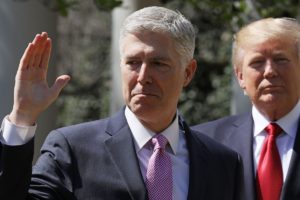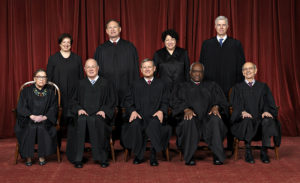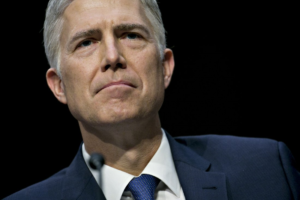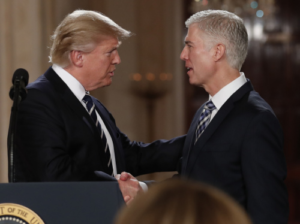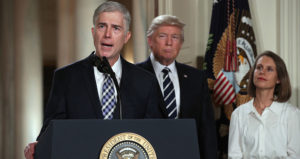
“So, are you ready for the catfight that’s going to erupt over this guy Trump has picked for the Supreme Court?”
That was the question posed to me today by a colleague of mine.
The reference, of course, was to Donald Trump’s nomination of Judge Neil Gorsuch to the highest court in the land.
“Catfight? Over this? Naw. The earth is going to open up and quake when the next justice leaves the court,” I said, referring to the possibility that either Justices Ruth Bader Ginsburg, Stephen Breyer or Anthony Kennedy might leave the court.
That, I said, will produce the “mother of all catfights.”
Gorsuch’s nomination doesn’t change a thing on the court. The president is seeking to place a judicial conservative on the court to replace another conservative’s seat, that of the late Antonin Scalia, who died in February 2016.
Yes, Senate Democrats are enraged. Not at the selection of Gorsuch, necessarily, but over the treatment that President Obama got when he nominated Merrick Garland this past year to succeed Scalia.
My own thought is that Gorsuch is likely to be as good a choice as Democrats are going to get, given Trump’s insistence on picking a conservative judge.
No, the real donnybrook will occur when one of the liberals or swing justices decides to leave … or is unable to serve.
My own advice to Democrats would be to pick their fights carefully. Sure, they battle Gorsuch’s nomination. They’ll insist on keeping the 60-vote majority required to approve a Supreme Court nomination. Republicans might decide to invoke the “nuclear option” and allow a 51-vote majority.
I have no real clue as to which way this fight will go.
It might serve Democrats better to hold their fire for the next vacancy when — or if — it occurs during Trump’s time in office.
Given the tenuous ideological balance of the court, with its slim conservative majority, I sincerely doubt that Justices Ginsburg and Breyer — both picked by President Clinton in the 1990s — are going to resign amid the political climate that has fallen over Washington.
As for Justice Kennedy, one of President Reagan’s picks, well, that might be another matter.
Whatever happens, the serious political bloodletting is yet to occur.
